Impact of Police Reform on Community Trust: Early Findings
In the wake of widespread calls for accountability and equitable policing, departments across the country have implemented a range of reform initiatives—from revising use-of-force policies to expanding community policing efforts. The Institute for Public Safety and Law Enforcement has launched a nationwide study to assess how these reforms are impacting public trust and engagement.
4/25/2024


Study Objectives
The study seeks to answer three central questions:
How have recent police reforms influenced public trust in law enforcement?
Which specific reforms are most strongly associated with improved community engagement?
What are the early indicators of long-term shifts in police-community relationships?
Methodology
Our research combines:
Surveys conducted in 15 cities that adopted major police reforms between 2021 and 2024
Interviews with over 300 community leaders, officers, and local officials
Policy analysis of reform initiatives and departmental transparency measures
Sentiment mapping from social media and local news coverage
Key Early Findings
1. Trust Is Recoverable—When Reforms Are Genuine
In cities that implemented multiple simultaneous reforms—such as revised use-of-force policies, public-facing accountability dashboards, and community advisory boards—trust ratings increased by 18–24% within the first year.
“When residents see consistent, measurable change, their perception of the police shifts from suspicion to cautious optimism.”
—Dr. Latoya Renshaw, Lead Researcher
2. Transparency Builds the Foundation
Reforms that made department data public—especially regarding use of force, complaints, and officer discipline—had the strongest correlation with improved trust. Communities reported feeling “informed” and “respected,” even when incidents occurred.
71% of respondents in reform cities said transparency made them more likely to report crimes or cooperate with investigations.
3. Community Policing Strategies Show Mixed Results
While community policing remains a cornerstone of reform efforts, the study found inconsistent outcomes based on how these strategies were implemented. Programs with long-term officer-resident engagement (e.g., neighborhood beat assignments) were more successful than short-term outreach events.
Authentic, sustained relationship-building—not symbolic gestures—fosters engagement.
4. Training Alone Is Not Enough
Departments that focused solely on officer training (e.g., de-escalation, bias awareness) without structural changes to oversight and accountability showed little improvement in public trust scores. This suggests that while training is necessary, it must be part of a broader, systemic strategy.
Spotlight: Case Studies
Cleveland, OH
Implemented real-time use-of-force dashboard, citizen oversight board, and revised stop-and-search procedures.
🟢 Result: 22% increase in trust among Black residents within 14 months.
Tucson, AZ
Focused on officer wellness and mental health support alongside public engagement efforts.
🟢 Result: Notable drop in resident complaints and increased youth program participation.
Birmingham, AL
Introduced training-only reform without changes to oversight or discipline practices.
🔴 Result: No significant change in public sentiment or cooperation rates.
Next Steps
The Institute will continue monitoring reform outcomes and expand the study to additional jurisdictions in Fall 2025. Final findings will be compiled into a national benchmarking report, designed to help agencies identify evidence-based pathways to restore and strengthen community trust.
Conclusion
Early data confirms that reform matters—but only when it is transparent, accountable, and rooted in community involvement. Departments that embrace meaningful change are seeing real improvements in how they are perceived and supported by the public.
At the Institute for Public Safety and Law Enforcement, we remain committed to equipping agencies with the tools and research they need to lead ethically, equitably, and effectively.
Contact
Address
info@lawenforcementsafety.org
530-394-3748
© 2025. All rights reserved.


2180 Harvard Street
Sacramento, CA 95815
